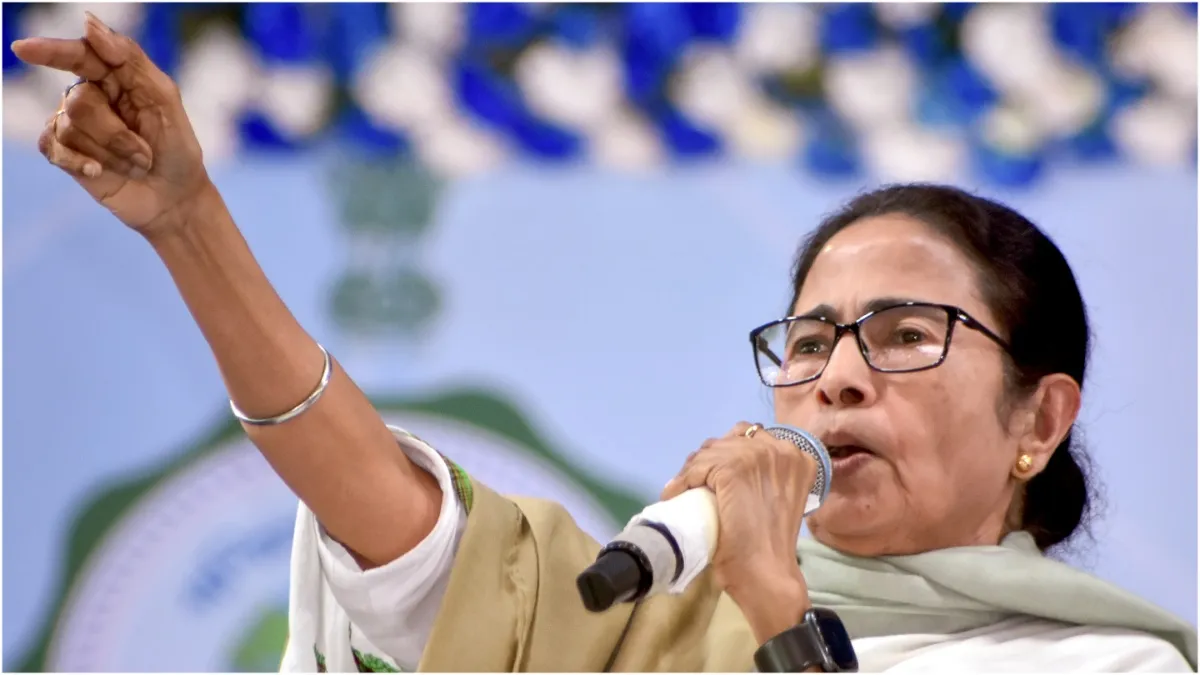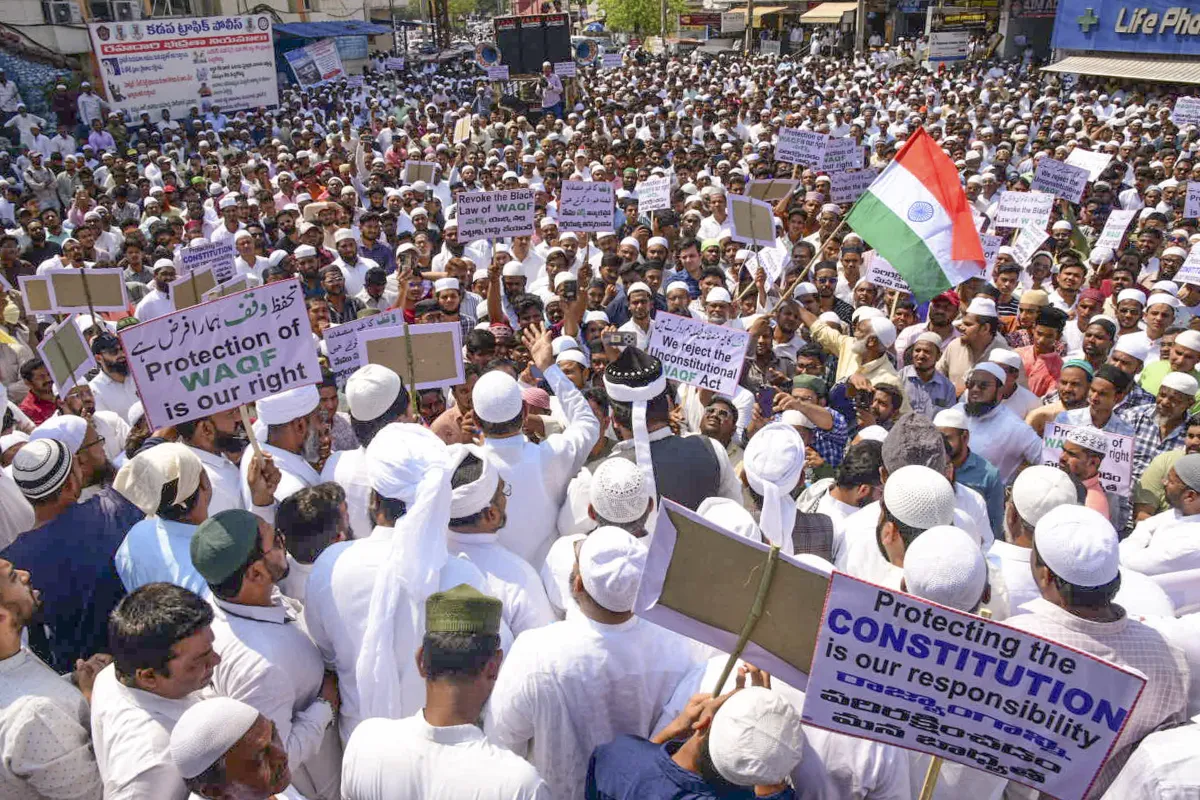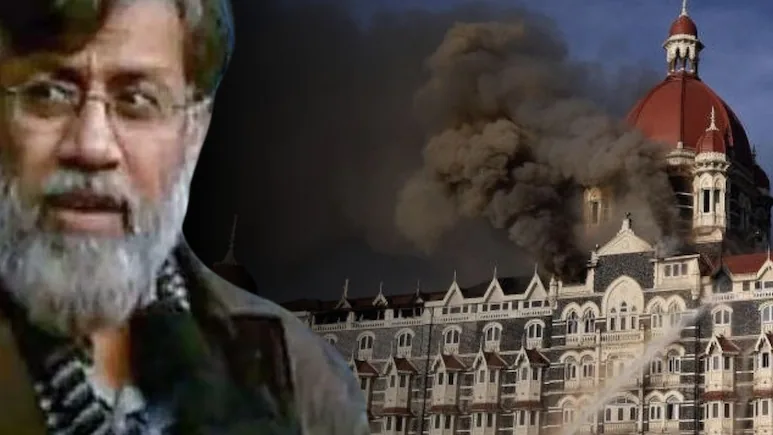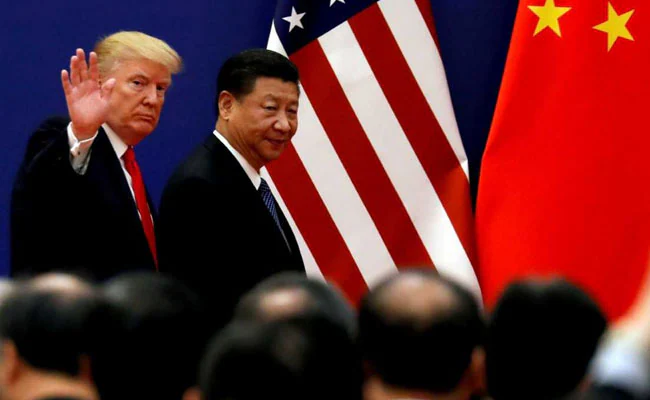Mamata Banerjee Gets Contempt Notice from NGO Over SC SSC Scam Verdict Remarks
Introduction: A Chief Minister, A Verdict, and A Brewing Legal Storm
West Bengal: The long-running saga of the West Bengal School Service Commission (SSC) recruitment scam has taken another dramatic turn, ensnaring Chief Minister Mamata Banerjee in a potential legal battle over contempt of court. Following her sharp public criticism of a recent Supreme Court verdict that invalidated nearly 26,000 school appointments, a legal notice has been served to the Chief Minister by an NGO, warning of contempt proceedings if she fails to apologise and comply with the apex court’s judgment. The notice, issued by advocate Siddharth Dutta on behalf of the NGO Aatmdeep, accuses Ms. Banerjee of undermining the judiciary’s authority through remarks made at a public meeting. This development ignites a fresh political firestorm, pitting the state government against opposition parties and raising fundamental questions about the separation of powers, freedom of speech, and the sanctity of judicial pronouncements in India. This in-depth article explores the Supreme Court’s landmark verdict, Ms. Banerjee’s controversial response, the specifics of the contempt notice, the legal framework surrounding contempt of court, the background of the sprawling SSC scam, and the wide-ranging political and legal ramifications.
The Landmark Supreme Court Verdict: Annulment of 26,000 Appointments
The catalyst for the current controversy was the Supreme Court’s judgment delivered on April 3, 2025. A bench led by Chief Justice of India Sanjiv Khanna upheld a prior ruling by the Calcutta High Court which had cancelled the entire 2016 recruitment panel established by the West Bengal School Service Commission (WBSSC). This decision effectively terminated the appointments of 25,753 teaching and non-teaching staff in state-run and state-aided schools across West Bengal.
The apex court found the recruitment process to be fundamentally flawed and “vitiated and tainted beyond resolution.” Key findings highlighted:
- Systemic Fraud: The court concurred with the High Court’s assessment that the process was marred by large-scale manipulations and fraud.
- Irregularities: Evidence pointed towards tampering of Optical Mark Recognition (OMR) sheets (used for objective tests), illegal ‘rank jumping’ where lower-ranked candidates superseded higher-ranked ones, appointments given to candidates not on the merit or waiting lists, and appointments exceeding the notified vacancies.
- Cover-up Attempts: The court noted that initial attempts by the WBSSC to cover up the illegalities made subsequent verification and segregation of tainted from non-tainted candidates “more difficult or rather impossible.”
- No Segregation Possible: Due to the pervasive nature of the fraud and the destruction or unavailability of crucial data (like mirror images of OMR sheets), the court found it impossible to separate the genuinely selected candidates from those appointed illegally. This led to the painful but legally necessary decision to annul the entire panel.
While delivering this significant blow, the Supreme Court offered a measure of relief by stating that the affected appointees would not be required to return the salaries already received during their employment. However, it directed the state authorities, potentially through the WBSSC, to initiate a fresh, transparent recruitment process, ideally within three months. Furthermore, the court permitted the Central Bureau of Investigation (CBI), which had been probing the scam under High Court orders, to continue its investigation into the criminal aspects, including the alleged cash-for-jobs racket involving political figures and officials.
“Cannot Accept Judgment”: Mamata Banerjee’s Fiery Response
The Supreme Court’s verdict sent shockwaves through West Bengal, impacting thousands of families and handing potent ammunition to the political opposition. Chief Minister Mamata Banerjee’s reaction was swift and sharp. Addressing a gathering of the affected candidates at Kolkata’s Netaji Indoor Stadium on April 8, 2025, she expressed strong disagreement with the judgment, coupled with defiance. Key excerpts from her speech, as cited in reports and the subsequent legal notice, include:
- Direct Challenge to Authority: “Who has the right to take away someone’s job? No one.”
- Refusal to Accept: “I cannot accept this judgment,” while also stating, “We have the highest regard for the judiciary.” She reportedly questioned the change in stance from a previous CJI who had stayed the High Court order to the current bench cancelling it.
- Contingency Plans & Defiance: “Our Plan A is ready, B is ready, C is ready, D is ready, and E is ready. Yes, I can be thrown in jail for saying this. But I don’t care.”
- Urging Continued Work: “You, please do your own work. Who has stopped you from doing your work? Supreme Court. Then remember, whatever is alternative, we will do.”
- Allegations of Conspiracy: “There is a conspiracy underway to destroy and dismantle the education system… They are calling all of them thieves and incompetent. Who gave you the right to say this? I am directly challenging you.”
- Humanitarian Grounds: She framed her support for the candidates on “humanitarian grounds,” stating she was ready to face arrest for it.
These remarks, delivered publicly and widely reported, were interpreted by critics and the NGO Aatmdeep as a direct affront to the Supreme Court’s authority and an indication of potential non-compliance with its binding judgment.
The Legal Notice & Contempt Threat: NGO Takes Action
On April 10, 2025, Advocate Siddharth Dutta, representing the Delhi-based NGO Aatmdeep, issued a formal legal notice to Chief Minister Mamata Banerjee. It’s crucial to note this is not a contempt notice issued by the Supreme Court itself at this stage. Rather, it is a precursor, a legal warning demanding specific actions from the Chief Minister, failing which the NGO intends to initiate formal contempt of court proceedings.
The notice accuses Ms. Banerjee’s remarks of constituting “a willful, deliberate, and calculated attack and affront on the judgment of the Hon’ble Supreme Court of India,” thereby undermining its authority. It sets forth the following demands:
- Instruct State Authorities to Comply: Ensure full implementation of the Supreme Court’s April 3 judgment regarding the cancellation of appointments and subsequent actions.
- Refrain from Defiant Statements: Cease making public statements that suggest defiance or non-compliance with the apex court’s ruling.
- Issue Unconditional Apology: Offer an unconditional apology to the Supreme Court for the remarks made on April 8.
The notice explicitly warns that failure to meet these demands could lead to the initiation of contempt proceedings against her under Article 129 of the Constitution of India (which designates the Supreme Court as a court of record with power to punish for its contempt) and the Contempt of Courts Act, 1971.
Contempt of Court Explained: Law, Limits, and Freedom of Speech
The concept of contempt of court is designed to uphold the majesty, dignity, and authority of the judicial system, ensuring its orders are respected and its processes are not obstructed. The Contempt of Courts Act, 1971, primarily governs this area in India. It defines two main types:
- Civil Contempt: Defined under Section 2(b) as “wilful disobedience to any judgment, decree, direction, order, writ or other process of a court or wilful breach of an undertaking given to a court.” The focus is on ensuring compliance.
- Criminal Contempt: Defined under Section 2(c) as the publication of any matter or the doing of any act which:
- (i) Scandalises or tends to scandalise, or lowers or tends to lower the authority of, any court; or
- (ii) Prejudices, or interferes or tends to interfere with, the due course of any judicial proceeding; or
- (iii) Interferes or tends to interfere with, or obstructs or tends to obstruct, the administration of justice in any other manner.
Ms. Banerjee’s remarks potentially fall under the ambit of ‘criminal contempt,’ specifically the clause related to ‘scandalising the court’ or ‘lowering its authority.’ Actions like questioning the court’s right to pass a judgment, suggesting defiance (“alternative plans,” “continue working”), or imputing extraneous motives (“conspiracy”) could be interpreted as undermining judicial authority.
However, the law also recognizes the importance of freedom of speech (Article 19(1)(a) of the Constitution). Section 5 of the Contempt of Courts Act explicitly states that “fair criticism” of a judicial act or judgment, after a case is finally decided, does not constitute contempt. The challenge lies in determining where ‘fair criticism’ ends and ‘scandalising the court’ begins. This determination is left to the judiciary’s interpretation. Furthermore, a 2006 amendment introduced ‘truth’ as a valid defence (Section 13), but only if it’s invoked in the “public interest” and is bona fide – again, subject to judicial assessment.
The Supreme Court has historically held that the power to punish for contempt should be exercised sparingly, but it will act firmly when judicial authority is genuinely threatened (e.g., EMS Namboodiripad case, Prashant Bhushan case).
West Bengal’s Massive SSC Recruitment Scam: A Deep Dive
The SSC scam is arguably one of the largest recruitment scandals in West Bengal’s history. Its roots lie in the 2016 selection process for Assistant Teachers (Classes IX-XII) and non-teaching staff (Groups C & D).
- Scale: Around 2.3 million candidates applied for 24,640 vacancies. However, 25,753 appointment letters were ultimately issued.
- Modus Operandi: Investigations, primarily by the CBI under court orders, revealed a multi-layered scam:
- OMR Sheet Manipulation: The private company tasked with scanning OMR sheets (Nysa Communications) allegedly manipulated scores. Digital records were found to be inconsistent or destroyed.
- Rank Jumping: Candidates with lower marks were placed higher on merit lists, bypassing deserving candidates.
- Blank OMR Appointments: Some candidates allegedly submitted blank OMR sheets and still received appointments after paying bribes.
- Appointments Outside Panels: Individuals not on the merit or waiting lists were given jobs.
- Cash-for-Jobs: Significant sums of money were allegedly exchanged for appointments, implicating officials and political figures.
- High-Profile Arrests: The investigation led to the arrest of prominent figures, including then Education Minister Partha Chatterjee (found with large amounts of cash allegedly linked to the scam) and several TMC MLAs and officials.
- Legal Battle: Numerous writ petitions were filed in the Calcutta High Court starting as early as 2016. Justice Abhijit Gangopadhyay (who later resigned and joined politics) passed several crucial orders, including directing the CBI probe. The High Court eventually cancelled the entire panel, a decision now affirmed by the Supreme Court.
The scam exposed deep-rooted corruption within the system and shattered the hopes of countless genuine job aspirants, making it a highly emotive and politically charged issue.
Political Eruption & Public Reaction: Accusations Fly
The contempt notice against Mamata Banerjee has intensified the political slugfest:
- TMC Response: The ruling Trinamool Congress has rallied behind its leader. Spokesperson Kunal Ghosh dismissed the notice as a “politically motivated ploy” by the opposition (implicitly BJP) to disrupt the government’s efforts to help the affected candidates. The party maintains that the Chief Minister respects the judiciary but has a right to express dissent, especially on humanitarian grounds, against a verdict causing widespread hardship. The state government, through the Chief Secretary and Education Minister, has indicated it will explore legal remedies, including filing a review petition against the SC judgment, while asserting its intention to act within the law.
- Opposition Offensive: The BJP and CPI(M) have seized upon the issue. BJP state president Sukanta Majumdar reiterated demands for Ms. Banerjee’s resignation, blaming her for the entire scandal. Leader of Opposition Suvendu Adhikari led protests, calling for action against the CM. CPI(M) leaders like Sujan Chakraborty and Md Selim blamed the state government’s alleged failure to segregate genuine candidates during the year-long stay period granted by the SC earlier, leading to the mass cancellation. They accuse the TMC of institutionalizing corruption.
- Public Sentiment: Public reaction is likely divided. There is sympathy for genuinely qualified candidates who lost jobs due to systemic fraud they had no part in. However, there is also anger over the corruption that denied meritorious candidates their rightful place. Ms. Banerjee’s defiant stance might resonate with her core supporters and the affected candidates seeking reinstatement, but it also draws criticism for potentially undermining the rule of law.
Judicial Independence vs. Political Speech: A Delicate Balance
This incident throws the perennial tension between freedom of political expression and the need to maintain judicial authority into sharp relief. Can a Chief Minister publicly declare disagreement with a Supreme Court verdict and suggest alternative actions without crossing the line into contempt? While politicians routinely criticize government policies and actions, criticism directed at the judiciary, especially the apex court, treads on sensitive ground. Attributing motives, suggesting defiance, or questioning the court’s fundamental right to adjudicate can be construed as attempts to lower its authority in the public eye. The precedent set in the E.M.S. Namboodiripad case, where a Chief Minister was convicted for alleging class bias in the judiciary, serves as a cautionary tale.
What Happens Next? Potential Consequences
The immediate step is Ms. Banerjee’s response to the legal notice from Aatmdeep. She may choose to ignore it, issue a clarification, or offer an apology.
- If Ignored/No Apology: The NGO Aatmdeep could proceed to file a formal contempt petition before the Supreme Court. For criminal contempt, this typically requires the consent of the Attorney General or Solicitor General, OR the court can take suo motu cognizance (initiate proceedings on its own).
- If Petition Filed: The Supreme Court would decide whether to issue a formal notice to Ms. Banerjee, asking her to show cause why contempt proceedings should not be initiated against her.
- If Notice Issued by SC: The case would proceed with hearings, where Ms. Banerjee would have the opportunity to defend herself.
- If Found Guilty: If the court finds her guilty of contempt, potential punishments under the Contempt of Courts Act include simple imprisonment up to six months, a fine up to ₹2,000, or both. The court also has the discretion to discharge the contemnor or remit the punishment if an apology is tendered to its satisfaction.
The political implications of a Chief Minister facing contempt proceedings in the Supreme Court would be immense, regardless of the final outcome.
Conclusion: High Stakes in a Confrontation Over Rule of Law
The legal notice served to Mamata Banerjee marks a significant escalation in the fallout from the West Bengal SSC recruitment scam. It represents a direct confrontation between political rhetoric challenging a judicial verdict and the legal mechanisms designed to protect the judiciary’s authority. While the Chief Minister frames her remarks as defending victimized candidates on humanitarian grounds, her critics and the NGO see them as a dangerous undermining of the rule of law and the Supreme Court’s finality. The coming weeks will reveal how Ms. Banerjee responds and whether formal contempt proceedings are initiated. This episode goes beyond the specifics of the SSC scam; it touches upon the core principles of democratic governance – the balance between executive expression, legislative action, and judicial independence. The outcome will be closely watched, potentially setting precedents for how India navigates the complex interplay between political dissent and judicial sanctity.
Read Also:- Locky Win



